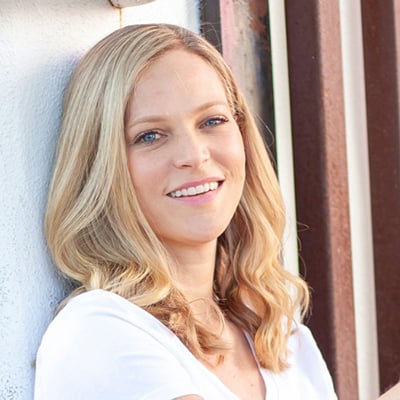Ваша звичка до кави допомагає чи шкодить вашому здоров'ю?

Як і більшість американців, я починаю свій день з паруючої чашки (або трьох) кави . Але чи є ця звичка здоровою? Здається, що заголовки весь час ходять туди-сюди. Кава корисна для вас! Кава шкідлива для вас! Жартую, кава знову корисна! Давайте копнемо трохи глибше і подивимося, що ж тут насправді відбувається.
Що міститься в чашці кави?
- Кофеїн (близько 95 міліграмів на 8 унцій).
- Вода
- Рибофлавін, Пантотенова кислота, Марганець, Калій, Магній і Ніацин
- Антиоксиданти
Які переваги вживання кави?
- Кофеїн, що міститься в каві , є стимулятором, який зменшує втому і допомагає нам почуватися бадьорішими. Кофеїн також може прискорювати метаболізм і підвищувати ефективність фізичних вправ.
- Дослідження показали, що кава має можливий захисний ефект проти захворювань мозку, можливо, знижуючи ризик деменції, хвороби Альцгеймера та Паркінсона.
- Вживання помірної кількості кави (навіть без кофеїну) пов'язане зі зниженням ризику розвитку діабету 2 типу, захворювань печінки та серця.
- Додавання молока або вибір лате може забезпечити здорову кількість кальцію та вітаміну D. .
- Нещодавно вчені виявили, що люди, які п'ють каву, живуть довше.
Які існують ризики, пов'язані з вживанням кави?
- Щоденне вживання кави формує у вашому організмі толерантність до кофеїну, що з часом робить його дію менш потужною.
- Кофеїн може викликати проблеми у чутливих людей, і, безумовно, споживання занадто великої кількості кави може призвести до нервозності, тривоги, прискореного серцебиття і навіть панічних атак.
- Вживання кави в кінці дня може порушити сон.
- Люди, які п'ють каву щодня, можуть відчувати симптоми відміни, коли припиняють її пити. Такі симптоми, як головний біль, втома і дратівливість, можуть тривати кілька днів або довше.
- Модні напої з кав'ярень часто містять зайвий цукор і калорії. (24 унції мокко фрапучіно зі збитими вершками містять майже 500 калорій). У магазинних вершках додають цукор і хімікати. Спробуйте замість цього додати трохи кокосового молока.
Скільки кави - це занадто багато?
Дослідження показують, що до 400 мг кофеїну на день є переносимим для більшості людей. Це приблизно чотири чашки кави по 8 унцій. Але пам'ятайте, що кофеїн міститься в інших продуктах і напоях, таких як чай, шоколад, газована вода та енергетичні напої. Крім того, вміст кофеїну сильно варіюється залежно від того, звідки ви берете каву і наскільки великою є ваша чашка. (Наприклад, велика кава в Starbucks містить близько 330 міліграмів кофеїну).
Вагітним жінкам, жінкам, які намагаються завагітніти або годують груддю, слід проконсультуватися зі своїм лікарем, перш ніж пити каву. Люди з гіпертонією, тривожними розладами, синдромом подразненого кишечника та ті, хто приймає ліки, повинні проконсультуватися з лікарем щодо вживання кофеїну. Ті, хто змушений відмовитися від кави через шлункові розлади або захворювання сечового міхура, можуть спробувати трав'яну альтернативу.
Що в підсумку?
Якщо вам подобається кавави можете продовжувати пити її з задоволенням. Просто пам'ятайте про поміркованість і тримайтеся подалі від модних цукрових версій з кав'ярень.
Як приготувати латте в домашніх умовах
Налийте 1/2 склянки молока в кавову чашку і нагрійте в мікрохвильовій печі протягом 45 секунд. За допомогою віночка інтенсивно збиваємо гаряче молоко протягом 30-60 секунд до утворення піни. Додаємо каву та посипаємо корицею.
ВІДМОВА ВІД ВІДПОВІДАЛЬНОСТІ:Інформація, що міститься в Центрі здоров'я, не призначена для встановлення діагнозу...
















































































 Зміст
Зміст


